calsfoundation@cals.org
Boles (Scott County)
Boles is an unincorporated community located along Highway 71, nine miles south of Waldron (Scott County). Boles was established in the mid-nineteenth century along the Fourche La Fave River, which runs through the Fourche River Valley of the Ouachita Mountains.
The first inhabitants of the area arrived thousands of years before Europeans, leaving archaeological evidence from the Archaic, Woodland, and Mississippian periods. The Caddo tribe had a strong presence along the Fourche Le Fave River and other prominent waterways. Burial grounds have also been discovered in the southern portion of Scott County near Boles. Throughout the late seventeenth and early eighteenth centuries, French trappers and explorers likely traveled the waters of the Petit Jean, Fourche La Fave, and Poteau rivers near Boles.
Settlers began arriving in the area near Boles as early as the 1820s. The area continued to be settled from the 1830s to the 1880s. Most families participated in a wide variety of agricultural practices. The Baker family were possibly the earliest settlers in the area that is now Boles. Caleb and Dorcas Baker settled in Boles during the early nineteenth century. Caleb was a hunter and trapper, and their first child was born in Boles in 1834. Caleb Baker later established a Blacksmith Shop in 1863. Another one of the earliest settlers in Boles, John A. Blackwell, established a blacksmith shop in 1860. This was also one of the earliest trades to be established in the town. In the 1860s, the Boles family settled in the community that would eventually be named after it; the community was originally called Stringtown. The origin of the name comes from the first settler being strung up and down the banks of the Fourche La Fave River. Travel by boat was likely easier at the time than using wilderness trails.
By 1887, the population of Boles increased from just a few people to around 100. A church, school house, blacksmith shop, wood shop, shoe shop, post office, and hotel had been established in Boles by this time. Also active within the community were four merchants: J. P. Sims, U. G. Keener, T. L. Naake, and Kirk Overton. The town had two doctors: J. D Stone and W. L. Tolleson. Professor O. C. Hall was teaching school in the years 1887, 1889, 1890, and 1891. The hotel was reportedly owned by the Overton family. The post office was established on March 7, 1870, with Andrew J. Patrick as the first postmaster. One of the main industries in Boles in the nineteenth century was cotton, and the town had a steam-powered cotton gin. Water was hauled from the Fourche La Fave River by wagon. Work at the cotton mill was dangerous, and several people were injured.
Boles continued to grow throughout the early twentieth century. Boles had several grist mills beginning in the late nineteenth century. The last mill was in operation until the late 1930s. Blacksmith Grady L. Rose also made coffins for members of the community in the early twentieth century. The last known doctor in Boles was Emmett E. Irwin, who practiced there until shortly after World War I.
During World War II, when metals such as iron, copper, and aluminum were needed for the war effort, resident Joe M. Miner, whose business was named Blue Sky Salvage, was primarily responsible for collecting the metal scraps and hauling them to Fort Smith (Sebastian County). Miner also operated Pine Knot Theater, located in an old grist mill in Boles, from about 1945 to 1946.
A portion of the Boles School District was consolidated with Waldron in 1953. In 1968, the Boles School was officially closed and fully consolidated with the Waldron School District. All that remains of the school in the twenty-first century is the cafeteria, which is used as a community center. Boles is one of the few communities in the county with an active rural fire department. Two churches serve the community: Boles Free Will Baptist Church and Boles Southern Baptist Church. The Postal Regulatory Commission sought to close the post office, one of the last rural post offices in the county, beginning in 2011. The post office’s hours of operation were limited in 2016 to weekday and Saturday mornings only. The house in which the old Boles Hotel was originally located underwent renovations and is occupied. All other businesses closed, with few of the buildings remaining.
For additional information:
Cate, Michael. History of Scott County, Arkansas. Dallas: Curtis Media Corporation, 1991.
Goodner, Norman. A History of Scott County, Arkansas. Siloam Springs, AR: Bar D Press, 1941.
McCutchen, Henry Grady. History of Scott County, Arkansas. Little Rock: H. G. Pugh and Company, 1922.
Ty Richardson
Richardson Preservation Consulting
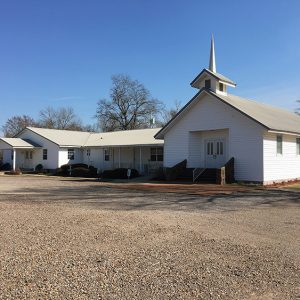
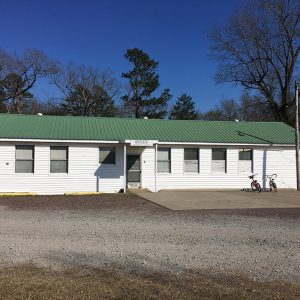
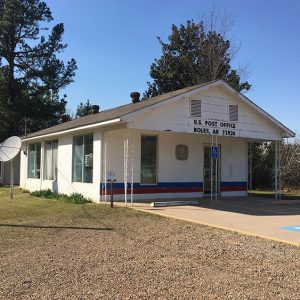
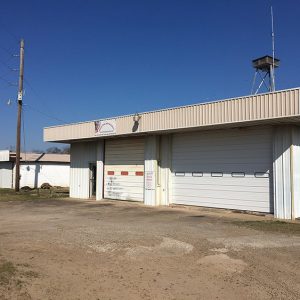
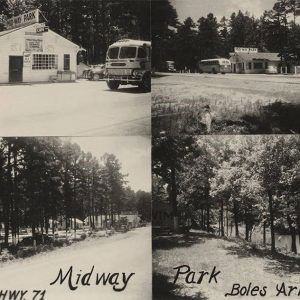
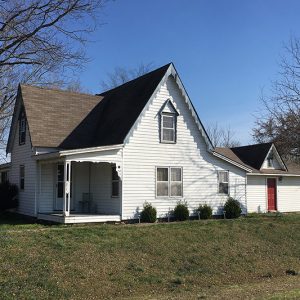
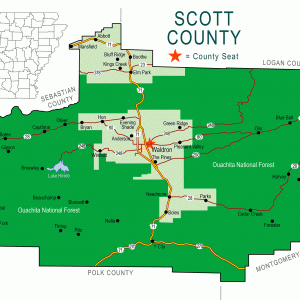




My great-great-grandfather John Boles was a rancher in Bluffton, Arkansas. He died and was buried there in 1861. He and Mary May Boles had fourteen children: seven boys and seven girls. The two oldest boys, Tom and William, fought for the Union. Don’t know how the name drifted down to Scott County but would like to find out. Three or more other communities were also named for the family (we think). They are as follows: Bold [Boles?] Springs, Arkansas; Boles, Tennessee; and Boles, California. I am writing a book about Mother Mary May and the family. Any info would be appreciated.
Hi, Margaret, my family is from Boles and my great-grandmother’s maiden name was Rose. We still go to the Boles Free Will Baptist Church.
Grady L. Rose was my grandfather. I saw him many times as a child when I went to Boles to visit. I was named after my great-grandmother, Margaret Ellen Rose.
Mamma grew up on their farm. She talked about her daddy being a blacksmith.
My mother, Ether Aileen Rose, was born in Boles, went to school there, and attended Free Will Baptist Church. She graduated valedictorian in her high school class.